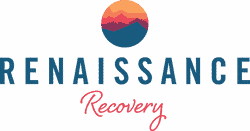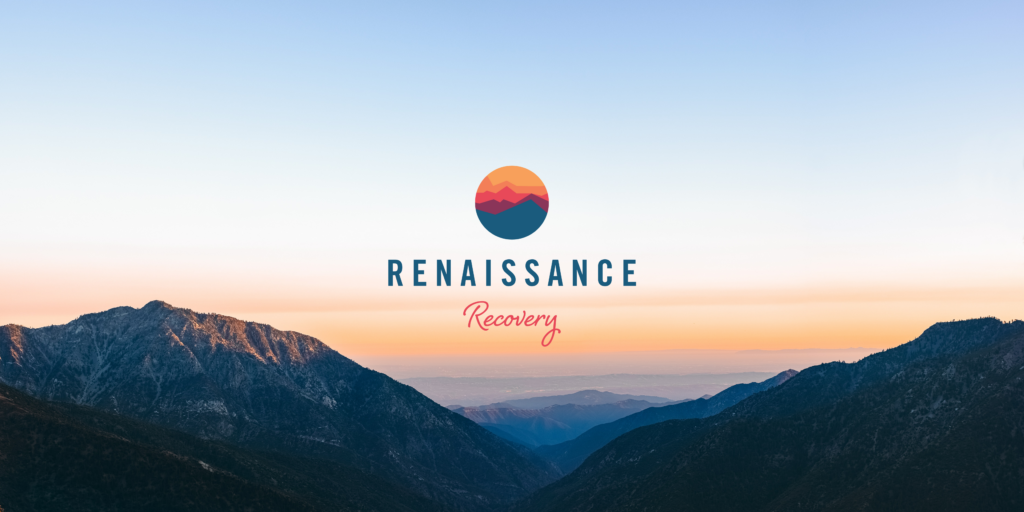Finding a Residential
Addiction Treatment Center
Residential Treatment Centers
Treatment does not end after drug detox. Inpatient treatment, intensive outpatient, and more are essential to long-term health and happiness for those struggling with a substance abuse problem. A substance use disorder is a chronic issue that requires professional rehab programs to provide the tools and knowledge to help reduce client symptoms and risk of relapse. To clear some terminology up residential treatment and inpatient are the same styles of treatment.
Residential and inpatient treatment focus on living in a 24-hour medical setting where programming and monitoring happen around the clock. While Renaissance Recovery’s California rehab is only an outpatient facility, we can help clients find the perfect residential treatment program. We partner with a number of treatment centers in the area to help ensure clients can get help for whatever level of care they need. After we will determine if our clients need detox, residential, or if they can admit directly into our intensive outpatient track.

By: Renaissance Recovery
Clinically Reviewed by: Diana Vo, LMFT
Last Updated:
03/24/2024
Residential treatment is an inpatient rehab option used to treat drug addictions, such as heroin addiction, and opioid addiction as well as alcoholism. Individuals benefit from 24/7 supervision and support while they participate in specialized substance abuse treatment programs and addiction therapy services. These programs mainly focus in dual diagnosis, co-occurring disorders, and polysubstance abuse. At Renaissance’s outpatient programs we focus on both mental health issues and substance abuse disorder while clients stay at sober living homes or come in for treatment.
However, for inpatient and residential levels of care, clients stay at the facility overnight for a recommended amount of time. Doctors and addiction specialist make the decision to determine length of stay and levels of care. An Inpatient stay ranges from ranges from 30, 60, and 90 days. Although extended options are available if needed.
Inpatient treatment centers typically offer evidence-based treatment which gives clients the confidence they need to be successful in treatment.
Table of Contents
What is Residential Treatment?
Residential treatment is an inpatient rehab option used to treat varying levels of substance use disorder. During treatment at a residential, or inpatient, facility clients will be monitored regularly as they go through various forms of psychotherapy, evidence-based treatment, and holistic treatment options. Other aspects of residential treatment can include dual diagnosis treatment to fight co-occurring mental health and substance abuse problems as well as medication-assisted treatment to help those early on in their recovery journey.

What to Expect in an Orange County Residential Treatment Center
At a residential treatment facility, clients will be in a safe, drug-free setting to heal from months or years of substance abuse.
An addiction specialist recommends the most effective length of stay, depending on the situation. For example, those who require dual diagnosis treatment may be advised to stay in treatment longer to heal from addiction and mental and behavioral health disorders.
A mix of treatment programs and therapies are utilized to build a solid foundation against addiction habits.
Individuals may participate in the following programs during their time in residential treatment as well as our outpatient programs:
Family Therapy
Addiction harms everyone. Plain and simple. When a client walks through the doors and completes treatment, it is important to have a path forward. Family therapy helps repair broken relationships. Whether the client lives alone and far away, or has children. The integration of family and loved ones creates stability.
SAMSHA describes MAT or Medication-Assisted-Treatment as the combination of treatment and monitored medications to ensure clients do not have severe withdrawals while in treatment. MAT improves patient survival, significantly increases length of stay and retention, and increases cognitive abilities for vocational development and more.
Cognitive-Behavioral Therapy (CBT)
Cognitive behavioral therapy or CBT for short, aims to improve the quality of one’s mental health. It aims to create and alter thinking patterns which were once harmed by substance abuse. It allows individuals to develop life skills to improve the well-being of each client.
Dialectical Behavior Therapy (DBT)
CBT and DBT, might sound similar, so we have outlined some major differences. DBT is under the CBT umbrella in a sense of improving thinking patterns. However, DBT is used to change self-destructive tendencies and gives patients skills they need to cope and eliminate any unhealthy behaviors.
Holistic treatment is straightforward, but important to the success of each client. Essentially it aims to treat the clients mind, body, and spirit. Holistic treatment allows individuals to improve diet, exercise, and other life skills that improves their mental and physical well-being.
There are many programs and techniques that can be utilized for addiction recovery. Talk to a recovery expert to find out which programs will benefit you or your loved one.
The Benefits of a Residential Treatment Program
Through addiction treatment programs, you will find the following benefits of residential treatment:
- Housing: During your time at a residential treatment center, you will have access to comfortably furnished rooms. This gives you a place to relax for healing.
- Nutritional Health: There is a chance that you haven’t been eating properly, which means your body is lacking key nutrients. A residential treatment center provides you with ingredients to cook and can sometimes provide healthy meals to recover your strength.
- Emotional and Mental Healing: Using drugs brings emotional pain, family divisions, and strife. Emotional healing will be a primary part of your journey during residential treatment.
- Medical Monitoring: In an inpatient setting, clients will go through many forms of treatment all while being medically monitored to ensure their safety and help avoid relapse.
Other benefits of residential treatment include having someone nearby to assist you with whatever is bothering you. You have access to trained professionals who understand drug addiction. They offer support and withdrawal management to ease symptoms when needed.
In addition, you won’t feel so alone when you join with others in a residential treatment program. You will attend group therapy sessions and other activities that help curb loneliness and depression.
Who Benefits From a Residential Treatment Program?
Those who struggle with severe substance abuse or mental health disorders will benefit from a residential treatment program.
The following disorders alone or co-occurring problems can be treated residentially:
- Substance abuse, such as heroin, alcohol, and prescription drug addiction
- Anxiety disorders from generalized to social anxiety
- Major depressive disorder
- Post-traumatic stress disorder
Residential treatment centers also offer safe places to live during treatment. Even if disorder symptoms are not severe, those who have unstable home lives or unsupportive relationships benefit from residential treatment.

The Importance of a Residential Treatment Centers
Although residential treatment programs are a single level of rehab care, they can be instrumental in addiction recovery.
Traveling away from home for treatment helps individuals focus solely on recovery. They’re removed from known and unknown triggers of addiction, as well as from the stress of work, school, and family. With a body free of drugs and alcohol, the recovery process truly begins.
The importance of a residential treatment program can be seen for years to come. The longer a person stays active in addiction treatment, the better their chances for long-term sobriety. Although relapse can occur, staying in treatment reduces the risks of returning to old habits.
Outpatient vs. Inpatient Drug Rehab
Residential addiction treatment is a great level of care for individuals going through drug rehab for the first time, have severe addictions, or chronically relapse. It is also recommended for those with addiction and mental health disorders, or co-occurring disorders.
Inpatient drug rehab involves a fully structured plan of treatments and therapies to develop coping skills, uncover underlying issues, and resources for continued recovery. Medical care and licensed professionals are available at any time during the stay.
Outpatient treatment programs provide daily treatment. This is a great option for after inpatient care, mild addictions, and those with unavoidable obligations. Individuals find they are able to continue caring for their families and attend school or work.
Outpatient care is less structured than inpatient drug rehab but has a similar availability of programs and therapies. Normally 10 to 12 hours are spent in treatment a week, but all programs are different. Clients normally find strong connections to their local sober community during their time in IOP.
While many of the same programs and therapies are available in inpatient and outpatient rehab, there are many factors to consider when choosing between the two. However, it is recommended that most people attend both when going to addiction treatment.
If you or a loved one is trying to decide on inpatient vs. outpatient treatment, call 866.330.9449 to schedule a consultation with an addiction specialist. Experts offer insights you may not realize based on your individual situation.
Dual Diagnosis Inpatient Treatment in Residential Rehab
For those entering drug rehab with a co-occurring mental health disorder, dual diagnosis treatment is vital for recovery. Substance use and mental health disorders tend to exacerbate the other’s symptoms. Treating one condition without the other will result in a fast relapse.
Common co-occurring disorders with addiction include:
- Depression disorders, such as major depressive disorder and seasonal depression
- Anxiety disorders, including social anxiety and phobias
- Bipolar disorder
- Trauma or post-traumatic stress disorder (PTSD)
- Eating disorders, like binge eating
- Obsessive-compulsive disorder (OCD)
When treatment for addiction and mental illness are needed, it is best to treat them at the same time in an inpatient rehab center. Addiction specialists and licensed therapists can monitor symptoms of both disorders and adapt custom treatment plans.
Continuing with Rehab Levels of Care
Levels of care after a residential treatment center in Orange County, CA include:
- Partial hospitalization treatment program (PHP). PHP provides full-time care for many hours at a time.
- Intensive outpatient treatment program (IOP). IOP services are applied if clients have a safe and drug and alcohol-free home.
- Outpatient treatment. Outpatient rehab programs assess relapse triggers, develop a prevention plan, and provide monitoring after clients return to regular routines.
- Alumni and community program. Support continues after outpatient programs end. Recovery resources are always available.
By using continuing levels of care for addiction treatment, individuals find a more vibrant and sober life with a decreased chance of relapse.
FAQs About Residential Rehab
How do residential treatment programs work?
Residential treatment programs work buy allowing clients dealing with substance abuse a place to stay while receiving addiction treatment. Most private drug and alcohol rehabs accept insurance and run a verification of benefits. After the VOB comes back, a rehab center will schedule a pre-intake assessment. A serious of questions is asked regarding mental health, medical records, substance abuse history and more.
Finally, an admissions date is scheduled.
What is a typical residential treatment day like?
All inpatient treatment centers have 24/7 staff to ensure patients are comfortable during the detox process and beyond. After detoxification, clients participate in daily programming, therapies, and activities. Most residential treatment centers allow clients to see their therapist multiple times per week. Now, some of these activities consist of swimming, yoga, boxing, weight lifting, going to the beach if you’re near one and more.
What’s the difference between inpatient and residential treatment?
They are the same. The industry professionals often use the term inpatient.
When is residential treatment necessary?
If there is a long history of chemical dependency and substance abuse, it’s going to best to go to residential treatment. It’s going to depend on types of substance, mental and behavioral health, and length of substance abuse.
Is residential treatment good?
Not only does it benefit clients, but it benefits loved ones because clients are in a safe setting with 24 hour monitoring to ensure each client is progressing toward sobriety and getting ready for after care. So you can rest easy knowing your loved one is safe.
What is a residential treatment setting?
Inpatient or residential settings allow clients to have 24/7 monitoring before graduating to aftercare. It allows clients to program and identify exact therapeutic modalities they need in order to be successful.
Our treatment team at Renaissance ensures your loved ones get the proper help they no matter the addiction or mental issues. Renaissance is both mental health treatment as well as chemical dependency, we specialize in outpatient treatment but can help you find the a great inpatient facility with one of the many connections we have in California. Begin your loved ones journey to sobriety by calling us today.

How Renaissance Can Help You Find a Residential Treatment Center
If you or a loved one are looking for help for drug or alcohol addiction problems and need help at rehab in Orange County or somewhere else in California, our team at Renaissance Recovery can help you. At Renaissance, we believe in treating the individual, not just the addiction, that’s why everyone’s treatment program is completely unique to their situation. If you are in need of an outpatient facility, our treatment program may be perfect for you. However, if you are looking for the best residential treatment program we can help get you in contact with other organizations in the area and help provide you with a rehab packing list.
To learn more about how our team can help you, please give our addiction hotline a call today at 866.330.9449.
Rehabilitation can put an end to addiction
Call and ask the facility directly or call your own provider to determine if your insurance covers the treatment.

